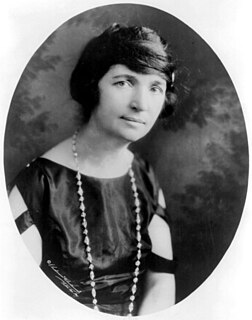
Margaret Higgins Sanger, also known as Margaret Sanger Slee, was an American birth control activist, sex educator, writer, and nurse. Sanger popularized the term "birth control", opened the first birth control clinic in the United States, and established organizations that evolved into the Planned Parenthood Federation of America.
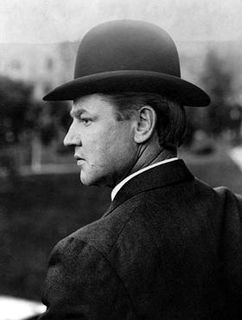
William Dudley "Big Bill" Haywood was a founding member and leader of the Industrial Workers of the World (IWW) and a member of the executive committee of the Socialist Party of America. During the first two decades of the 20th century, Haywood was involved in several important labor battles, including the Colorado Labor Wars, the Lawrence Textile Strike, and other textile strikes in Massachusetts and New Jersey.

Dora, Countess Russell was a British author, a feminist and socialist campaigner, and the second wife of the philosopher Bertrand Russell. She was a campaigner for contraception and peace. She worked for the UK-government-funded Moscow newspaper British Ally and in 1958 led the "Women's Peace Caravan" across Europe during the Cold War.

Mary Church Terrell was one of the first African-American women to earn a college degree, and became known as a national activist for civil rights and suffrage. She taught in the Latin Department at the M Street School —the first African American public high school in the nation—in Washington, DC. In 1895, she was the first African-American woman in the United States to be appointed to the school board of a major city, serving in the District of Columbia until 1906. Terrell was a charter member of the National Association for the Advancement of Colored People (1909) and the Colored Women's League of Washington (1892). She helped found the National Association of Colored Women (1896) and served as its first national president, and she was a founding member of the National Association of College Women (1923).

Mary Coffin Ware Dennett was an American women's rights activist, pacifist, homeopathic advocate, and pioneer in the areas of birth control, sex education, and women's suffrage. She co-founded the National Birth Control League in 1915 together with Jessie Ashley and Clara Gruening Stillman. She founded the Voluntary Parenthood League, served in the National American Women's Suffrage Association, co-founded the Twilight Sleep Association, and wrote a famous pamphlet on sex education and birth control.
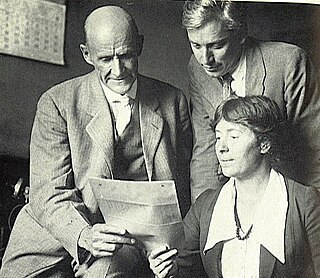
Rose Harriet Pastor Stokes was an American socialist activist, writer, birth control advocate, and feminist. She was a figure of some public notoriety after her 1905 marriage to Episcopalian millionaire J. G. Phelps Stokes, a member of elite New York society, who supported the settlements in New York. Together they joined the Socialist Party. Pastor Stokes continued to be active in labor politics and women's issues, including promoting access to birth control, which was highly controversial at the time.

Elizabeth Gurley Flynn was a labor leader, activist, and feminist who played a leading role in the Industrial Workers of the World (IWW). Flynn was a founding member of the American Civil Liberties Union and a visible proponent of women's rights, birth control, and women's suffrage. She joined the Communist Party USA in 1936 and late in life, in 1961, became its chairwoman. She died during a visit to the Soviet Union, where she was accorded a state funeral with processions in the Red Square attended by over 25,000 people.

Marie Equi was an early American medical doctor in the American West devoted to providing care to working-class and poor patients. She regularly provided birth control information and abortions at a time when both were illegal. She became a political activist and advocated civic and economic reforms, including women's right to vote and an eight-hour workday. After being clubbed by a policeman in a 1913 workers' strike, Equi aligned herself with anarchists and the radical labor movement.
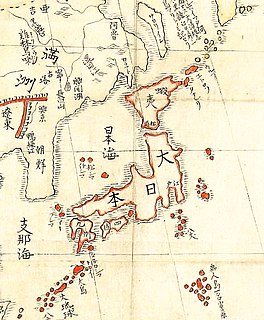
Feminism in Japan began with women's rights movements that date back to antiquity. The movement started to gain momentum after Western thinking was brought into Japan during the Meiji Restoration in 1868. Japanese feminism differs from Western feminism in the sense that less emphasis is on individual autonomy.
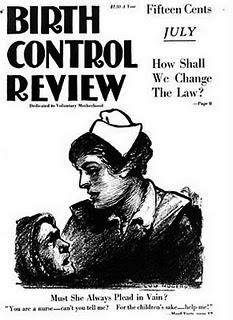
The National Birth Control League was a United States organization founded in the early 20th century to promote the education and use of birth control.

Mahala Ashley Dickerson was an American lawyer and civil rights advocate for women and minorities. In 1948 she became the first African American female attorney admitted to the Alabama State Bar; in 1951 she was the second African American woman admitted to the Indiana bar; and in 1959 she was Alaska's first African American attorney. In 1983 Dickerson was the first African American to be elected president of the National Association of Women Lawyers. Her long legal career also helped to pave the way for other women attorneys. In 1995 the American Bar Association named her a Margaret Brent Women Lawyers of Achievement honoree.

Antoinette F. Buchholz Konikow was an American physician, Marxist, and radical political activist. Konikow is best remembered as one of the pioneers of the American birth control movement and as a founding member of the Communist Party of America, forerunner of the Communist Party, USA. Expelled from the Communist Party as a supporter of Leon Trotsky in the fall of 1928, Konikow went on to become a founder of the Communist League of America, the main Trotskyist organization in the United States. Konikow's 1923 book, Voluntary Motherhood, is regarded as a seminal work in the history of 20th Century American feminism.

Katharine Martha Houghton Hepburn was a U.S. feminist social reformer and a leader of the suffrage movement in the United States. Hepburn served as president of the Connecticut Woman Suffrage Association before joining the National Woman's Party. Alongside Margaret Sanger, Hepburn co-founded the organization that would become Planned Parenthood. She was the mother and namesake of actress Katharine Hepburn and the grandmother and namesake of actress Katharine Houghton.

The birth control movement in the United States was a social reform campaign beginning in 1914 that aimed to increase the availability of contraception in the U.S. through education and legalization. The movement began in 1914 when a group of political radicals in New York City, led by Emma Goldman, Mary Dennett, and Margaret Sanger, became concerned about the hardships that childbirth and self-induced abortions brought to low-income women. Since contraception was considered to be obscene at the time, the activists targeted the Comstock laws, which prohibited distribution of any "obscene, lewd, and/or lascivious" materials through the mail. Hoping to provoke a favorable legal decision, Sanger deliberately broke the law by distributing The Woman Rebel, a newsletter containing a discussion of contraception. In 1916, Sanger opened the first birth control clinic in the United States, but the clinic was immediately shut down by police, and Sanger was sentenced to 30 days in jail.

Ida Crouch-Hazlett was an American political activist prominent in the suffrage and socialist movements. Crouch-Hazlett is best remembered as a prominent orator and organizer for the Socialist Party of America during the first two decades of the 20th century. In 1902 Crouch-Hazlett became the first female candidate for U.S. Congress from Colorado, when she ran for a seat in the House of Representatives.

Fania Esiah Mindell was an American feminist, activist, and theater artist.

Ethel Higgins Byrne (1883-1955) was an American Progressive Era radical feminist. She was the younger sister of birth control activist Margaret Sanger, and assisted her in this work.
Caroline Nelson of Denmark was an American birth control advocate and radical socialist. A member of Margaret Sanger's inner circle, she was affiliated with the Northern California Birth Control Committee of 100. As a San Francisco-based Wobbly organizer, she spoke at IWW meetings, along with Emma Goldman, Elizabeth Gurley Flynn, and Rose Pastor Stokes. Nelson was married to Carl Rave, an ironworker and union activist who also participated in birth control activism.

Jessie Eden (1902–1986) was a leading British trade union leader and communist activist, most famous for leading 50,000 households during the Birmingham rent-strike of 1939. She was also involved in the construction of the Soviet Union's Moscow Metro, convincing women at Birmingham's Joseph Lucas motor factory to join the 1926 UK General Strike, and leading an unprecedented and successful strike of 10,000 factory worker women in 1931. For her commitment to helping improve the working conditions of English factory workers, she was awarded the T&G gold medal from Ernest Bevin. Later in life, she served for three decades as Birmingham city's federation of council house tenants. Her involvement in the trade unions of the English Midlands led to a massive increase in women joining British trade unions. She was a lifelong supporter of both the Communist Party of Great Britain (CPGB) and the Transport and General Workers' Union (T&G).


















